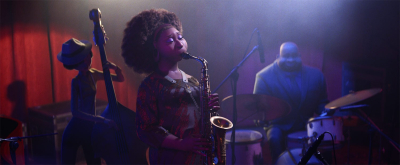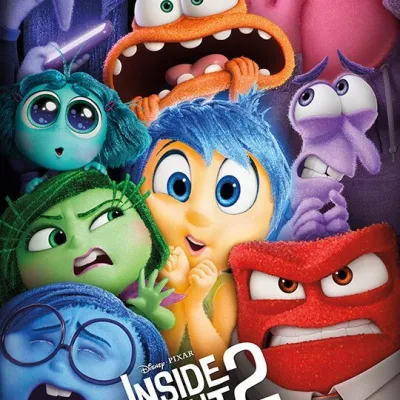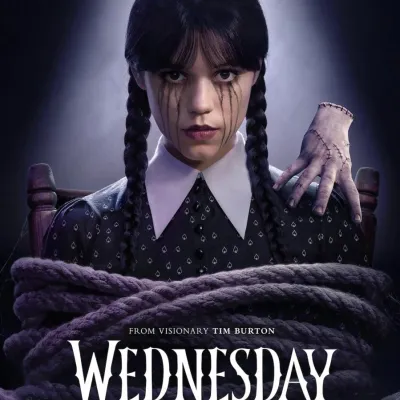Soul
When Pixar first announced "Soul," I was intrigued. The studio known for masterpieces like "Toy Story," "Up," and "Inside Out" was setting its sights on the intangible essence of human life: the soul. The film seemed poised to tackle philosophical questions that most of us have pondered at some point in our lives. How does a film, intended for audiences of all ages, manage to address concepts associated with existence, purpose, and the afterlife? My curiosity was piqued, and I knew this was not to be missed.
History and Background
Directed by Pete Docter and Kemp Powers, “Soul” marks a significant expansion in Pixar's storytelling repertoire. Set against the vibrant backdrop of New York City, the story unfolds through the character of Joe Gardner, a middle-school music teacher with aspirations far beyond the classroom. The choice to focus on jazz, a genre that embodies spontaneity and emotion, sets the stage for a narrative that is as much about music as it is about life.
The Intellectual Pull
What makes “Soul” particularly fascinating is its readiness to engage with the abstract. It ventures beyond the tangible aspects of human life to explore the metaphysical. The filmmakers delve into the mysteries of the “before-life” and the afterlife, crafting a narrative that invites viewers to consider the very essence of what it means to be alive.
A Symphony of Animation
Visually, “Soul” is a breathtaking ode to animation. Pixar’s prowess in creating hyper-realistic worlds finds a new expression here, with representations of New York City that are remarkably authentic. The play of natural light in the animated environments is so convincing that at times it feels more like an innovative live-action film than a traditional cartoon.
Characters That Resonate
The characters in “Soul” are not just personas; they are aspects of the human experience brought to life. Joe Gardner, voiced by Jamie Foxx, is a wonderfully complex character whose struggles and triumphs are deeply relatable. His journey through the film becomes a reflective mirror in which viewers can see their own experiences.
A Dash of Whimsy
The film doesn’t lose sight of its whimsical roots, crucially maintaining a balance between the heavy and the light-hearted. This is most evident in the character of 22, a rebellious soul voiced by Tina Fey. Her interactions with Joe present moments of humor that cleverly guide the film’s heavier themes toward tangible, grounded takeaways.
A Tale of Two Journeys
Joe and 22’s journey is as much external as it is internal. Their adventure across realms is rendered with an imaginative creativity that only Pixar could conjure. The juxtaposition of their respective desires—Joe’s wish to return to Earth and 22’s reluctance to embrace earthly life—creates a narrative tension that is both compelling and deeply human.
The Essence of Jazz
Few films manage to capture the spirit of jazz as “Soul” does. Jazz is not merely a soundtrack here; it's a philosophy that permeates the film’s narrative and thematic core. The improvisational nature of jazz echoes Joe's life trajectory and draws a beautiful parallel between music and existence.
The Nuances of Sound
Beyond its visual grandeur, “Soul” excels in its auditory intricacies. The soundtrack, a collaboration between Jon Batiste, Trent Reznor, and Atticus Ross, is a masterful fusion. It weaves jazz with ethereal tones, forming a sonic landscape that enriches the film’s storytelling and emotional depth.
Realism Meets Fantasy
Pixar’s ability to blend realism with fantasy achieves new heights in “Soul.” The depiction of New York is so alive with authenticity that I found myself yearning for the city’s pre-pandemic vibrancy—the bustling streets, the clanging subway, the energy that is quintessentially New York.
A Personal Reflection
As I navigated Joe's quest for purpose, I couldn't help but reflect on my own life. “Soul” provoked me to consider the countless small moments that shape our journeys, a reminder that life’s beauty often lies in the mundane rather than the monumental.
Interpretations of Purpose
The film’s exploration of life purpose challenges a prevalent belief that one’s “spark” is synonymous with their career. Instead, it suggests that the ordinary, everyday elements of life might hold the very essence of what makes life meaningful.
Surprise and Delight
While “Soul” carries a deep philosophical message, it never loses its sense of surprise. There is an improvisational quality to the storyline that maintains an air of unpredictability, keeping me thoroughly engaged from beginning to end.
An Artistic Achievement
“Soul” is a crowning achievement in Pixar’s artistic catalogue. The film defies the typical blockbuster mold, striving for a nuanced narrative fabric that embraces both the complexity and simplicity of life, resulting in a poignant cinematic experience.
Conclusion
As the credits rolled, I found myself enveloped in a sense of warmth and introspection. “Soul” managed to articulate unspoken thoughts and emotions that often reside just beneath the surface of our daily consciousness. In an entertainment landscape often dominated by the superficial, “Soul” stands as a beacon of depth and sincerity.
In the end, “Soul” is not merely an animated feature; it’s a reminder—a beautiful, resonant reminder—of the richness of life and the intricate tapestry of experiences that define our existence. Pixar has once again crafted a narrative that transcends animation and touches the soul.


































